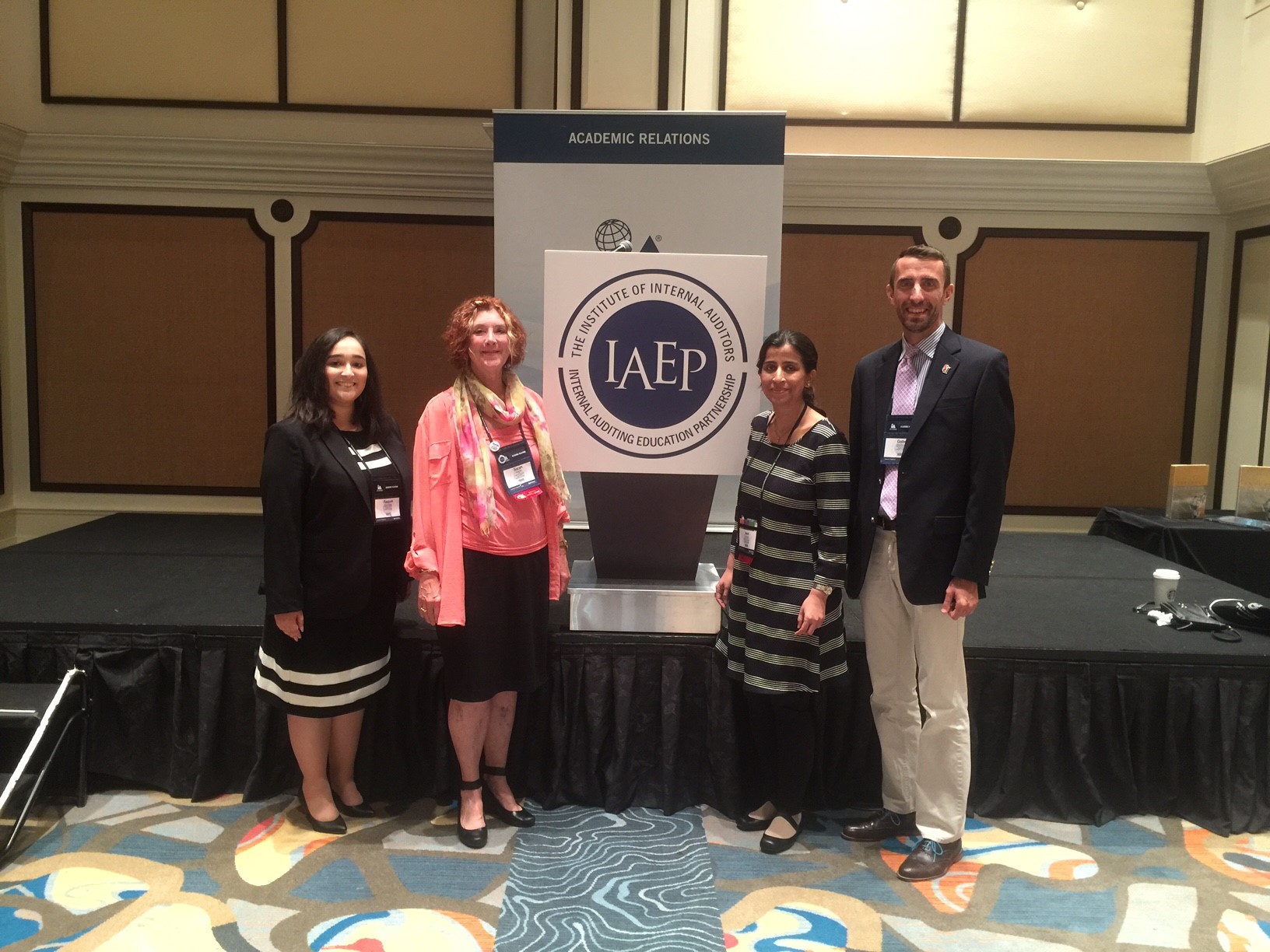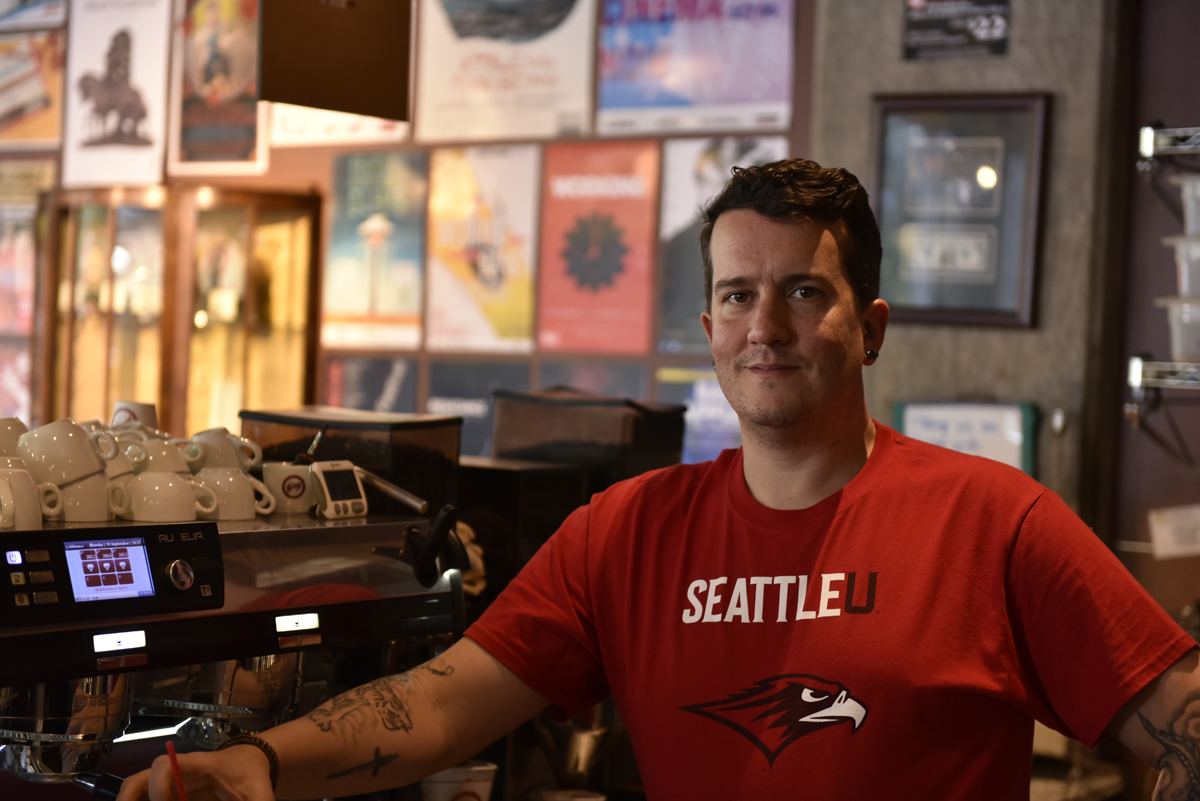
Fall 2016
Give to Accounting Associates Fund
EU Study Tour
By Nicholas Haddad and Trey Takara
We are very grateful to have participated in the third European Union Study Tour this summer. The tour took us out of the classroom to 20 venues in four countries over two weeks.
The rigorous pre-departure sessions prepared us to interact with professionals at corporations, agencies, and institutions in Frankfurt, Luxembourg, Brussels, and Amsterdam. Under the guidance of our professors we taught each other about topical issues, examined the relationship between public institutions and corporations, and made comparisons between U.S. and European corporate governance.

EU Class of 2016
We built on this foundation when we visited such institutions as the German Bundesbank, the European Central Bank, the German Corporate Governance Code Office, the European Court of Justice, the European Investment Bank, the European Court of Auditors, the European Commission, and the European Confederation of Institutes of Internal Audit; when we attended presentations at corporations like the Frankfurt Stock Exchange, the Microsoft Executive Briefing Center, the Audi manufacturing plant, the DAF headquarters, FloraHolland, the Starbucks Concept Store, and Nike’s European headquarters; and when we met with professionals at PwC, EY, and Deloitte.
As accounting majors, we enjoyed working with our fellow students who represented different majors at Albers. Being part of such a diverse cohort, we all benefited by sharing with each other the unique perspectives of our disciplines so that we were able to see business much more holistically. For many of us, this was our first opportunity to put on business suits and interact with the people that we want to be, to discover what’s important to them in their professional lives, and to learn about how they got to where they are now. For our part, we now have a much clearer sense of direction in our academic studies, in our career planning, and in our life goals.
Soon into the tour, we began to connect the dots with what we had learned from previous courses, and the frequency and the magnitude of these connections snowballed as the tour went on. Now, back in the classroom at Seattle University, we both look forward to applying what we learned from these experiences to our current and upcoming coursework. Many thanks to the Accounting Associates Fund for the scholarship that contributed to our ability to participate in this tour and to represent the Accounting Department, in particular, and Seattle University, in general. And we hope that others, through their generous contributions, may continue to make this and other study tours a possibility for accounting students in years to come.
Internal Audit Program
By Sarah Bee
The market for internal audit graduates is excellent; the Robert Half Salary Guide for Accounting and Finance lists internal audit as one of the hot positions for 2016. The Seattle University Internal Audit Education Partnership (IAEP) program is beginning our third year. In year two of our program the Institute of Internal Auditors (IIA) elevated our program to Comprehensive level. This recognition confirmed our commitment to internal audit education and provided additional resources for our program. We have expanded our course offerings to include a Communications for Accountants class, and we have also added IT Audit to our course offerings. Our students receive theoretical as well as practical applications of internal audit. Last year we completed nine operational audits of Seattle University processes including meal plans, Orca card administration and company credit cards. In addition, the IT Audit class performed IT Audits, including reviewing student worker access rights. The experiential learning component of our internal audit program differentiates us from other programs and enriches the students’ internal audit education. Employers who hire our graduates comment on their grasp of internal audit and their ability to quickly become productive at their job.

Left to right: Raquel Cavazos, Sarah Bee, Iram Jafry, and Gabriel Saucedo
Internal auditors experience all aspects of a corporation and make a difference by improving the operations of an organization. To demonstrate competence internal auditors can sit for the Certified Internal Auditor (CIA) designation. Our students may take this exam in lieu of finals for two of our classes and have the exam fee reimbursed. The CIA designation provides the student with instant credibility for knowledge of internal controls with prospective employees.
The internal audit degree has wide applicability across a variety of fields. For example, The Boeing Company has engineers working in internal audit who possess the expert knowledge to effectively audit manufacturing and design. Hospitals employ medical professionals as internal auditors. Our program provides flexibility to professionals who wish to acquire formal internal audit education. A student can complete the internal audit certificate by taking five internal audit courses or as a component of a Master’s or Juris Doctorate program.
The success of the Seattle University IAEP program would not be possible without the support of many individuals and organizations. The Internal Audit Advisory Board continues to work tirelessly on behalf of our program. The Northwest region IIA chapters provide financial support as well as send guest speakers to our classes. The Seattle University community has graciously worked with our students over the last three years as we’ve completed over twenty-five operational and IT audits. The Albers administration and the accounting department have supported this program fully. The IIA Research Foundation provides funding for our program. And this program has greatly benefitted from the amazing internal audit faculty – Dennis Applegate, Steve Mar and Peggy Gilmer. All of the parties involved have my deepest gratitude for their contributions to our program.
Ferry Family Scholarship
This is how most people are used to seeing me. Standing behind the bar at a coffee shop, at the ready to serve whoever walks through the door. Most probably don’t give a thought to who I am beyond this persona of barista. Some, when they find out I go to Seattle U and I am studying accounting, react with a slight tilt of the head and a quizzical, “really?”

Chad Norris
Personally I understand the confusion. I never thought I would be someone who studies something like accounting. After 20 years in customer service I didn’t know where I was going to go. For the longest time I thought accounting or business school in general wasn’t an option. I thought I might be too old, or too different, to major in business. However, while battling severe depression at the lowest point in my adult life I thought, “why not?” So I took a chance, took a class, and changed my perspective. I realigned my schooling and my goals, which eventually allowed for my arrival here.
During my time at Seattle U, I have often heard that accounting firms want people who break the mold a bit. People who can succeed with the already established business framework but come from a different walk of life. This diversity of staff leads to many different ideas when it comes to problem solving. It allows for the same problem to be evaluated from so many perspectives it can be solved in ways previously not thought of. The trick is, in order to get the diversity that firms seek, they need to be able to tap into potential not yet discovered. Talent that might be standing right in front of them, asking them the simple question, “What can I get for you?”
This access to opportunity is the hallmark of social justice. Giving the chance for someone, like me, who has a limited support network and must work to support themselves while in school the chance to change their world and the world around them. I have come to believe that accounting has the power change the world, but in order for change to occur accountants need to be a representation of the world. Slices of humanity that can look at the great problems facing the ever shifting business landscape and rise to the occasion.
Access is what I gain from something like the Ferry Family Scholarship. To elaborate on this point, I would like to say thank you to everyone who donates to Seattle University. Each and every one of you has personally made it so I can focus on what is right in front of me. It is more than a monetary value. It is hope for the future and confirmation that I am in the right place. Thank you.